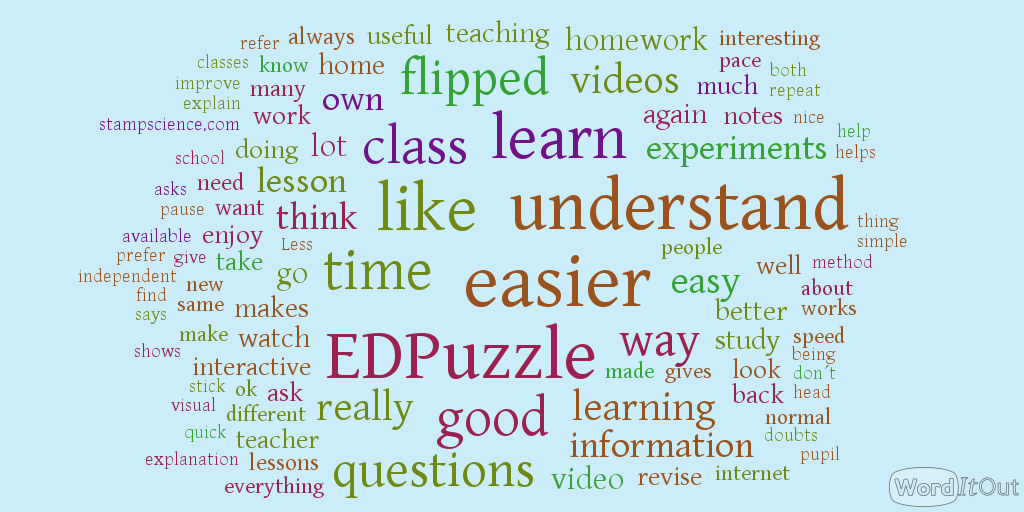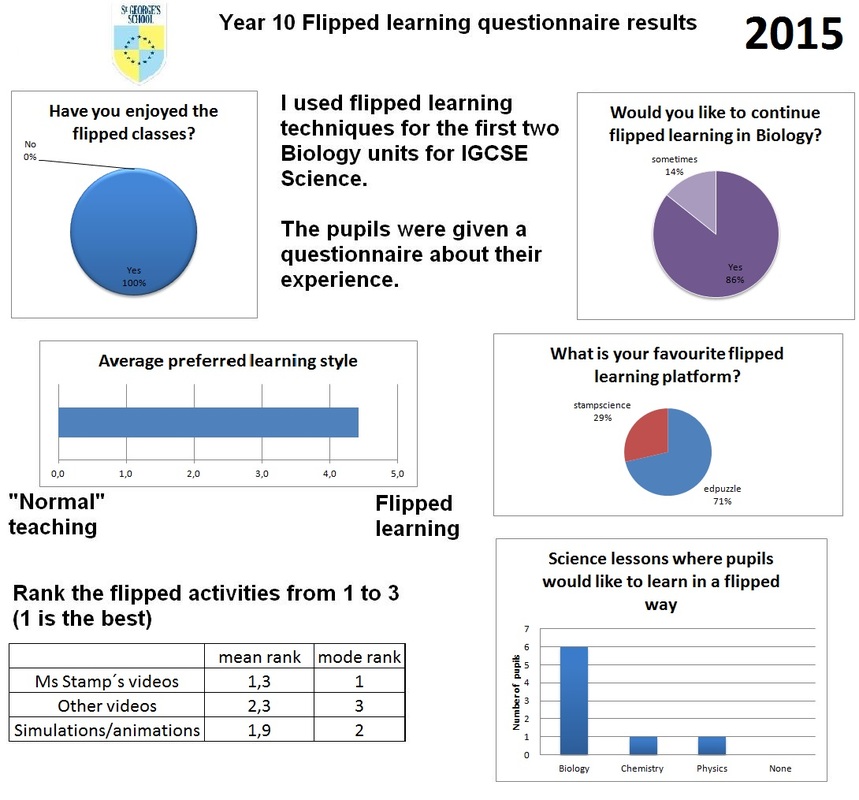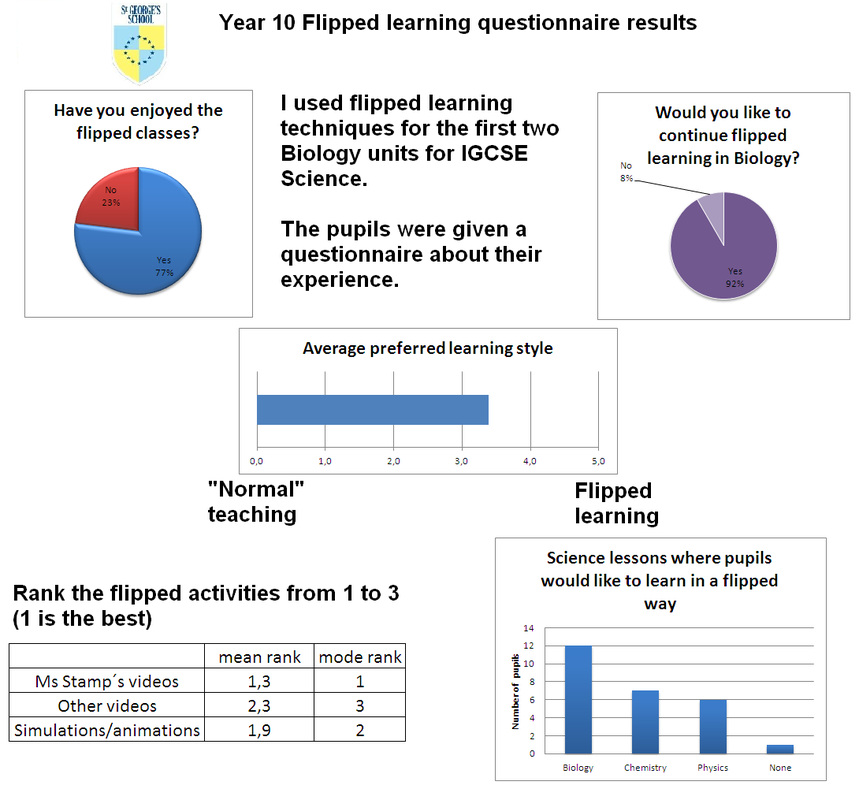FLIPPED LEARNING
I have been flipping my classes in IGCSE Science since September 2013 after doing a flipped learning course from Sophia.org.
WHAT IS FLIPPED LEARNING?
An excellent explanation from flipped learning pioneer Aaron Sams. This inspired me to start using flipped learning in my lessons.
HERE IS A WORDCLOUD CREATED FROM THREE YEARS OF PUPIL SURVEY RESULTS
PUPIL SURVEY RESULTS 2015
Your browser does not support viewing this document. Click here to download the document.
PUPIL SURVEY RESULTS 2014
I divided the pupils' comments into three categories: positive comments about flipped learning, negative comments and ways I can improve the teaching/learning. You can zoom in to read the comments better.
Your browser does not support viewing this document. Click here to download the document.
CONCLUSIONS
The conclusions of the questionnaire are as follows:
1. Flipped learning will continue in Biology
2. I may use some flipped classes in Physics and Chemistry
3. Pupils liked flipped learning because it was easier to do their homework, there was more time for experiments/activities in class and because they could learn at their own pace.
4. They didn´t like flipped learning because they were unable to ask the teacher while watching the video. Some said it was more confusing.
How will I improve my next flipped learning lessons:
1. Look into addition of subtitles and whether I can add the webcam.
2. Try to find a program that allows pupils to pause without the play symbol in the middle
3. Add more animations
4. Try to sound more enthusiastic and add more interesting facts
5. Add more links to other resources on the topic
1. Flipped learning will continue in Biology
2. I may use some flipped classes in Physics and Chemistry
3. Pupils liked flipped learning because it was easier to do their homework, there was more time for experiments/activities in class and because they could learn at their own pace.
4. They didn´t like flipped learning because they were unable to ask the teacher while watching the video. Some said it was more confusing.
How will I improve my next flipped learning lessons:
1. Look into addition of subtitles and whether I can add the webcam.
2. Try to find a program that allows pupils to pause without the play symbol in the middle
3. Add more animations
4. Try to sound more enthusiastic and add more interesting facts
5. Add more links to other resources on the topic



